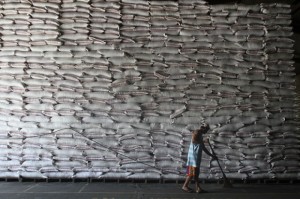Manufacturing growth in March weakened to its slowest in seven months partly due to congestion at the country’s main ports in Manila.
The latest Nikkei Philippines Manufacturing Purchasing Managers’ Index released Monday showed that the seasonally adjusted PMI declined to 51.5 last month from 51.9 in February, making it five straight months of slowing growth.
Since the March PMI score stayed above 50, there was an overall increase in manufacturing activity; however, it was the lowest since the 50.6 posted in August last year.
In a report, IHS Markit, which compiles the PMI survey data, attributed the sliding headline PMI to “a notable drop in the rate of output expansion in March.”
“While many businesses saw volumes of work increase from February, others reported decreased production due to falling sales and reduced supply of raw materials,” IHS Markit said.
“New order growth remained solid in March, albeit still weaker than the series average. Manufacturers were boosted by strong customer demand, with some highlighting increased activity in the construction sector. At the same time though, firms saw a fractional decline in new export orders. Anecdotal evidence suggested that weaker overseas demand and administration issues affected sales,” according to IHS Markit.
For his part, IHS Markit economist David Owen blamed the slower PMI on congested ports as empty containers stacked up.
“Port congestion at Manila continues to increase lead times and reduce raw material supply, and will likely harm exports if the problem is not contained,” Owen said.
To ease port congestion, the Bureau of Customs has temporarily prohibited returning empty containers at Manila’s two ports. —BEN O. DE VERA


